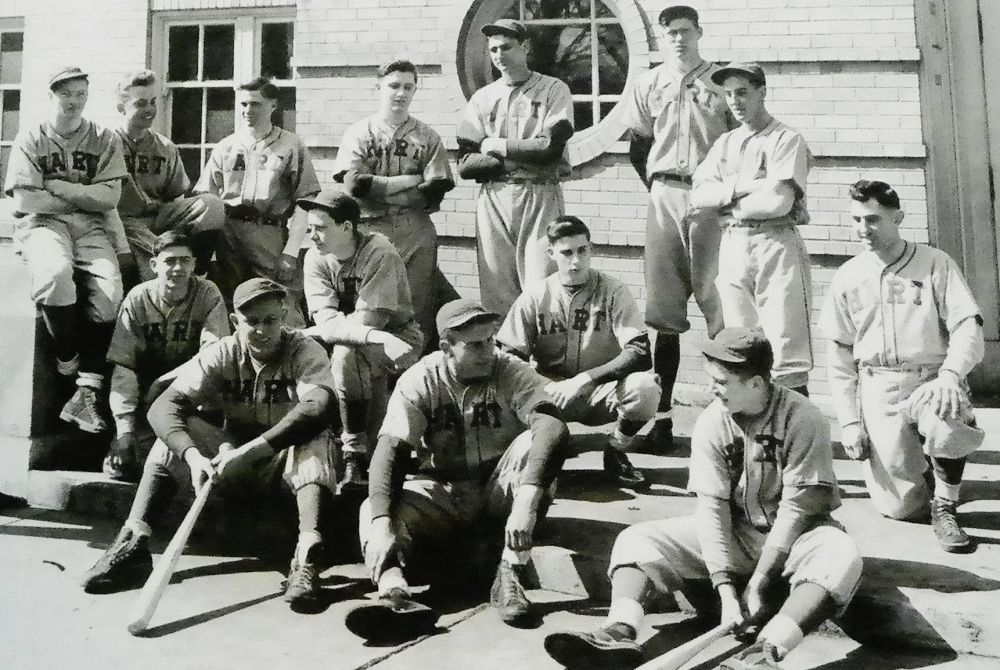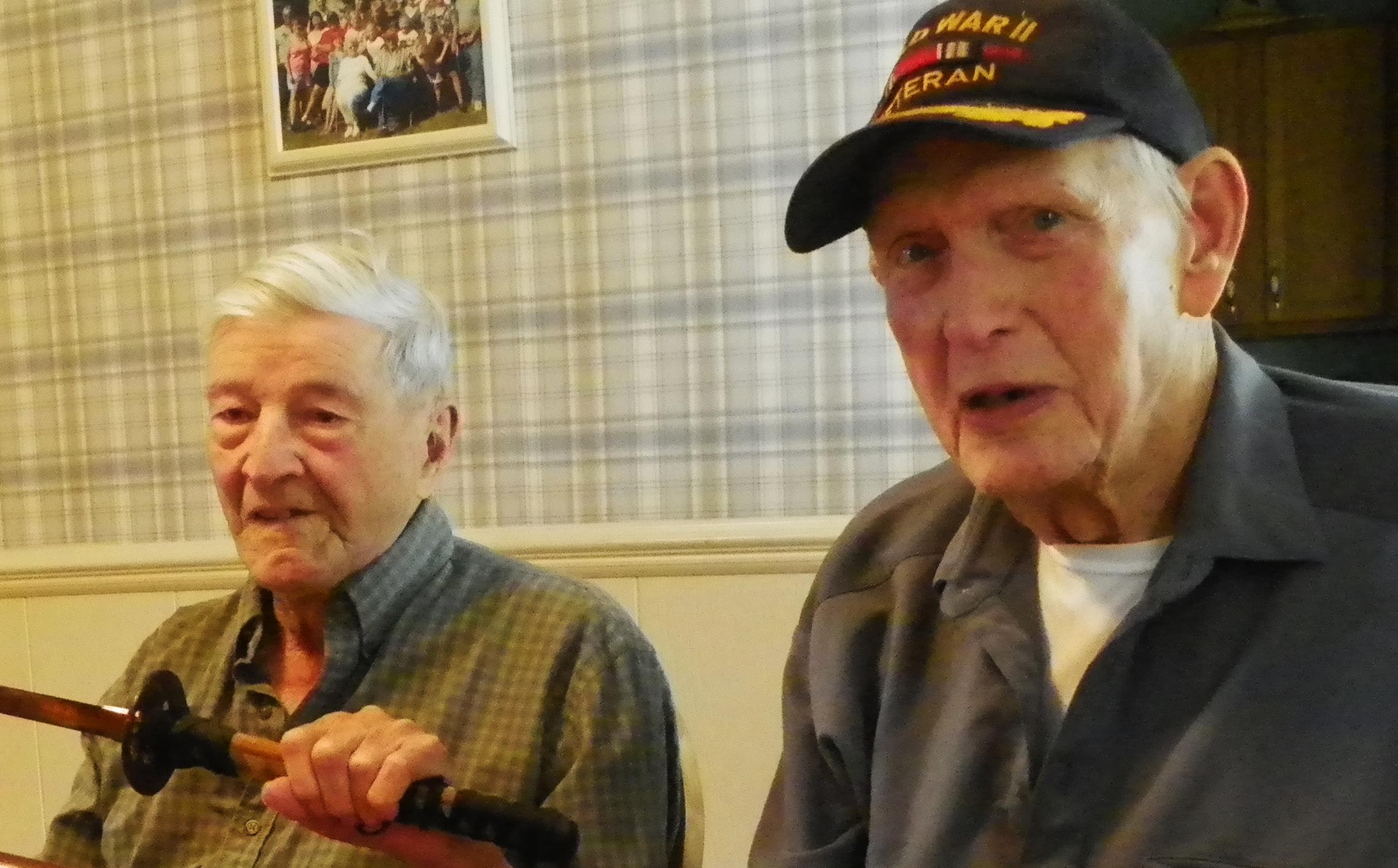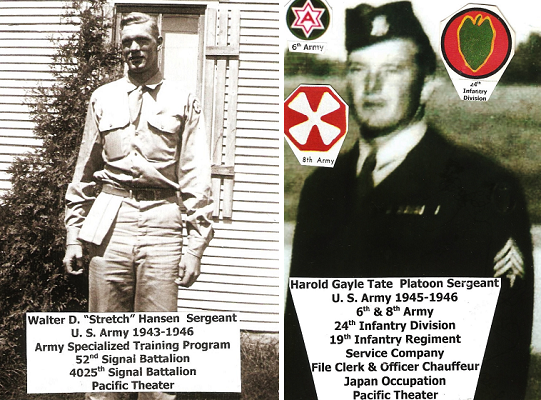
Detroit 'Longtime' Boys Coaches Down to Few
By
Tom Markowski
Special for Second Half
December 14, 2016
Gary Fralick considers himself one of the fortunate ones.
 Fralick, 66, is in his 32nd season as a head boys basketball coach. He retired from his teaching position in 2013. He started coaching at Redford Thurston in 1979, went to Royal Oak Kimball in 1984 and is in 23rd season as the head coach at Troy.
Fralick, 66, is in his 32nd season as a head boys basketball coach. He retired from his teaching position in 2013. He started coaching at Redford Thurston in 1979, went to Royal Oak Kimball in 1984 and is in 23rd season as the head coach at Troy.
Fralick might be lucky, but he is unquestionably rare. Fralick is believed to be one of three coaches in the Macomb/Oakland/Wayne area who has coached for more than 30 seasons.
There’s Dan Fife at Clarkston and Kevin Voss of Clinton Township Chippewa Valley, both of whom in their 35th seasons, all at the same school.
Another, Greg Esler at Warren DeLaSalle, is in his 30th season. He was the head coach at St. Clair Shores Lake Shore for seven seasons before going to DeLaSalle in 1994.
“We’re part of a dying breed,” Voss said.
It certainly appears so. Coaching longevity has taken on a different meaning recently. Twenty seems like a lot in these times, and in reality it is a long time. Twenty years or so ago, 20 years was normal. There’s a new normal, and 20 or 25 years isn’t it.
Many factors have contributed to this change. A person’s personal and family life often don’t coincide with the demands of coaching basketball. The responsibilities that come with coaching have increased. Some coaches say that to be an effective coach, it can be a 10- or 11-month job.
Two factors are at the forefront, and they are both financial. Coaches used to be educators as well as coaches. Yes, coaching can be viewed as teaching on the court, but at one time teaching in a classroom and coaching used to go hand in hand.
 Then there’s the subsidy coaches receive. It varies from school district to school district. Some make $4,000 a season, others can make $7,000. And it also costs money to run a program; unless the coach receives financial help from a booster club or parents, the money he or she receives begins to dwindle.
Then there’s the subsidy coaches receive. It varies from school district to school district. Some make $4,000 a season, others can make $7,000. And it also costs money to run a program; unless the coach receives financial help from a booster club or parents, the money he or she receives begins to dwindle.
But the most important factor is time.
“A tremendous amount of time is devoted to watching DVD or tapes,” Fralick said. “I know I’m dating myself with saying that. The point is, you’re watching a lot. There’s more scouting. And you don’t get paid much. Why don’t they stay as long as they used to? They get burned out. They want to spend more time with their families.
“You don’t see as many of the young coaches stay. Coaches don’t have the ambition to coach a long time. It’s not a profitable job. I don’t know what other coaches make. We used to compare what we made. Not anymore.
“Thirty years or more? I don’t see it happening. There’s the dual job thing. Things have changed. To me, it’s been a great job.”
To compensate for being away from home, Fralick brought his family with him. Sort of. He coached his son Gary, Jr., and Tim. Gary, a 1996 Troy graduate, played for his father his junior and senior seasons and Tim, a 1999 graduate, played four seasons on varsity. Fralick said he was even more fortunate to coach both on the same team (during the 1995-96 season).
Then there’s his wife, Sharon, who remains the scorekeeper.
“I’ve always had a passion for coaching and teaching,” Fralick said. “I love the game of basketball. I love the kids. There’s never a dull moment. It’s been a great ride.”
Vito Jordan has been around basketball all of his life. His father, Venias Jordan, was the boys head varsity coach at Detroit Mackenzie and Detroit Mumford before stepping down as a head coach only to return to the bench assisting his son the last six seasons.
Vito Jordan, 31, became a head coach at Detroit Osborn when he was 24. He started his coaching career the year before as an assistant to Henry Washington at Macomb College. Jordan went to Detroit Community after one season at Osborn and guided Community to its only MHSAA Finals appearance (Class B, 2013). He’s now in his fourth season as the head coach at Detroit Renaissance.
“I followed my father all of my life,” Jordan said. “I knew what I wanted to do when I was in college (Alma College). This is what I want to do the rest of my life.”
It’s different in Detroit. Schools close. Job titles change. Jordan, for instance, teaches at the Academy of Warren, a middle school in Detroit. It’s a charter school, not within the Detroit Public School system, therefore he receives his pay from two separate school systems (Renaissance is in the DPS).
There is a distinction. In some school systems coaches will receive a percentage – let’s say for argument sake, 10 percent – of their teaching salary to coach. Let’s say a person makes $60,000 a year to teach. He or she would then receive $6,000 to coach. If you coach two sports, that’s $12,000.
 Jordan is not privy to such a contract. Each job is separate. Jordan loves to coach, and he understands he must be a teacher to earn a decent living, and he’s content to continue on the path he is following. But he also knows that to make a good salary just coaching one must move on to the collegiate level like others have done.
Jordan is not privy to such a contract. Each job is separate. Jordan loves to coach, and he understands he must be a teacher to earn a decent living, and he’s content to continue on the path he is following. But he also knows that to make a good salary just coaching one must move on to the collegiate level like others have done.
“When there were coaches like my dad, Perry Watson (Detroit Southwestern), Johnny Goston (Detroit Pershing) and others, they all worked in the (Detroit Public) school system. Everyone was teaching. That was your career. None of them had aspirations of being a college coach. Not even Watson. Now everyone isn’t in the teaching profession. Maybe they do have a degree and maybe they don’t. The point is, most aren’t teachers. I can count on one hand those (in Detroit) who have their teaching certificate and coach.”
Jordan noted such successful PSL coaches like Derrick McDowell, Steve Hall and Robert Murphy who left high school to pursue a coaching career in college. Murphy guided Detroit Crockett to the Class B title in 2001 and is now the head coach at Eastern Michigan. McDowell has had two stints as a collegiate assistant coach, most recently at EMU. He’s since returned to coach at Detroit Western. Hall coached Detroit Rogers to three consecutive Class D titles (2003-05) before going to Duquesne University and Youngstown State as an assistant coach. Hall returned to Detroit last season and is in his second season as head coach at Detroit Cass Tech.
Jordan said they left high school to challenge themselves professionally, among other considerations. Voss said there are variables that influence how long a person lasts, in one school district or in coaching in general, that didn’t exist 20 years ago.
“Athletics have become pervasive in high school,” he said. “The whole booster situation you find in college is here. You can be winning but not winning enough. It’s a trickle down affect.
“Coaches complain about parents. Parents complain about playing time. High school sports is not as pure as it once was. Winning is way more important now. Now a coach comes in with a three-year window. You can have one or two down years, and the third you’d better win.
“Then there’s the pressure on your family. I’ve been lucky. My wife and I have had the players over for team dinners. We create a family atmosphere. It’s a change of society. I don’t envy the young coaches coming in.”
Community involvement has always been a priority for Voss. To keep a hand on the pulse, Voss heads the elementary basketball program within the Chippewa Valley school district. Games are held on Saturdays, and approximately 750 students take part.
“You have to have the right fit,” he said. “I’m in the right spot. You coach for different reasons when you get older. I’m enjoying the game. There’s a different level of satisfaction.”
 Tom Markowski is a columnist and directs website coverage for the State Champs! Sports Network. He previously covered primarily high school sports for the The Detroit News from 1984-2014, focusing on the Detroit area and contributing to statewide coverage of football and basketball. Contact him at [email protected] with story ideas for Oakland, Macomb and Wayne counties.
Tom Markowski is a columnist and directs website coverage for the State Champs! Sports Network. He previously covered primarily high school sports for the The Detroit News from 1984-2014, focusing on the Detroit area and contributing to statewide coverage of football and basketball. Contact him at [email protected] with story ideas for Oakland, Macomb and Wayne counties.
PHOTOS: (Top) Troy boys basketball coach Gary Fralick, left, is in his 32nd season coaching. (Middle) Detroit Renaissance boys coach Vito Jordan is following in the coaching footsteps of his father, Venias. (Below) Chippewa Valley boys coach Kevin Voss, left, is in his 35th season at his school. (Top and below photos courtesy of C&G Newspapers; middle photo courtesy of Detroit Public School League.)

Hart Teammates Reunite After 80 Years Now as WWII Vets, Great-Grandfathers
By
Tom Kendra
Special for MHSAA.com
June 7, 2023
Walter “Stretch” Hansen and Harold Tate were good friends and high school basketball and baseball teammates at Hart High School, graduating in 1943.
 No one could have guessed that less than two months after graduation (on July 2, 1943), the two friends would head to Fort Custer in Battle Creek, the first stop on their way overseas to fight for their country in World War II.
No one could have guessed that less than two months after graduation (on July 2, 1943), the two friends would head to Fort Custer in Battle Creek, the first stop on their way overseas to fight for their country in World War II.
No one could have imagined how many twists and turns their lives would take over the next 80 years – from the battlefields in the South Pacific, then back to West Michigan where they both were married with children, grandchildren, great-grandchildren and now Harold even has a great-great-grandchild.
And, certainly, no one would have believed that the two young boys from Hart – who forged a friendship through high school sports long before the days of computers, microwave ovens and cell phones – would still be alive at the age of 98 for an emotional reunion last month, on May 22, seeing each other for the first time in 80 years and, to cap it off, the reunion took place in their hometown of Hart.
“It was such a great day,” Hansen said about the meeting, which was set up by Muskegon-area World War II historian Richard Mullally.
“We picked right up, talking about sports and the service and everything else.”
The conversation came easy for the two old friends, who played for Hart during a “golden era” at the school – particularly in basketball, as the Pirates won 11 West Michigan Conference basketball titles between 1940 and 1954.
 Perhaps the best team during that time period was Hansen and Tate’s as seniors in 1943. That team lost only once, to rival Scottville (31-25), but more than made up for it with an 80-10 trouncing of the Spartans in the final regular-season game.
Perhaps the best team during that time period was Hansen and Tate’s as seniors in 1943. That team lost only once, to rival Scottville (31-25), but more than made up for it with an 80-10 trouncing of the Spartans in the final regular-season game.
Hart then crushed Scottville and Newaygo to win the District championship, only to have Michigan’s prep basketball season stopped abruptly at that point because of World War II.
That 1943 team featured four starters over 6-0, led by the duo of Hansen and Stan Kapulak (both 6-6), Joe Mack (6-2), Lyle Burmeister (6-1) and Stanley Riley (the lone starter under 6-foot at 5-11).
“The newspapers called us ‘The Hart Skyscrapers,’” said Hansen, who will be 99 on Nov. 6. “We were taller than most college teams at that time.”
Hansen and Tate’s friendship continued to blossom on the baseball field, only to have their lives turned upside down shortly after graduation 80 years ago, when all Hart senior boys who had been drafted headed to Battle Creek as a brief staging area on their way to the battlefields of Europe and the South Pacific.
Hansen served in the Army Specialized Training Program and was part of the 52nd Signal Battalion and the 4025th Signal Battalion in the Pacific Theater.
“I had an all-expense paid tour of the South Pacific,” Hansen said with a chuckle. “The Philippines, New Guinea, Okinawa, Hawaii, all over the place.”
Tate did his service in the 24th Infantry Division and the 19th Infantry Regiment, and was stationed in Japan.
During their visit last month, Harold showed off the Japanese Samurai sword and Arisaka rifle which he had sent back from Japan to Hart. The week after their visit, both took part in Memorial Day parades – Hansen in the Lakeside parade in Muskegon and Tate in his 77th Memorial Day service in Hart.
Hansen, who still has a home on a small lake in Holton and lives at a senior care facility in Muskegon, played many years of semi-pro basketball and did some coaching. He worked at GTE and has five children and 10 grandchildren.
 “I have been so blessed,” Hansen said, sorting through one of his many scrapbooks. “All five of my kids are great and I have grandkids that are just amazing, everything they are doing. I don’t even know all of their names, but it’s sure been fun watching them.”
“I have been so blessed,” Hansen said, sorting through one of his many scrapbooks. “All five of my kids are great and I have grandkids that are just amazing, everything they are doing. I don’t even know all of their names, but it’s sure been fun watching them.”
Tate returned to Hart after his military service and has been there ever since, at first working as a carpenter with his father and then becoming a rural mail carrier for the U.S. Postal Service, retiring 26 years ago at the age of 72. He has lived in the same home for 75 years and has three children, six grandchildren, seven great-grandkids and now one great-great-grandchild.
Tate laments the demise of his beloved American Legion post in Hart, a town with just over 2,000 residents, as the number of members has steadily declined.
One topic that brings a smile to both of their faces is the recent resurgence of the Hart High School athletic program, which drew media attention not too many years ago for all the wrong reasons – notably a football program which went 24 years without a winning record.
That string was snapped with a 6-3 mark and the school’s first earned playoff appearance last fall.
But that was just the start.
This winter, Hart’s boys basketball team finished the regular season 22-0, the girls basketball team made it to the Division 3 Semifinals at the Breslin Center, wrestling qualified for the Team Finals for the fourth-straight year and competitive cheer placed fourth in Division 4. This spring, the Hart girls track & field team won its second-straight Division 3 Finals team title, and the boys placed fourth.
“It’s a great place to call home, a great place to live, always has been,” said Hansen of his hometown, which got its name from its central position in the “heart” of Oceana County.
And who would have imagined that these two high school teammates could still come home again for a reunion at the age of 98?
 Tom Kendra worked 23 years at The Muskegon Chronicle, including five as assistant sports editor and the final six as sports editor through 2011. E-mail him at [email protected] with story ideas for Muskegon, Oceana, Mason, Lake, Oceola, Mecosta and Newaygo counties.
Tom Kendra worked 23 years at The Muskegon Chronicle, including five as assistant sports editor and the final six as sports editor through 2011. E-mail him at [email protected] with story ideas for Muskegon, Oceana, Mason, Lake, Oceola, Mecosta and Newaygo counties.
PHOTOS (Top) Members of the 1943 Hart High School varsity baseball team gather together, preparing for a team photo. Among those are Harold Gayle Tate (far left) and Walter "Stretch" Hansen, at 6-6 the tallest player in the back row. (Middle) Hansen, left, and Tate reunite for the first time in 80 years on Monday, May 22, 2023, in their hometown of Hart. (Below) Hansen served from 1943 to 1946 as a Sergeant in the Pacific Theater during World War II. Tate served from 1945 to 1946 as a Platoon Sergeant in the Pacific Theater during World War II. (Top photo courtesy of Stretch Hansen. Middle and below photos courtesy of Richard Mullally.)

